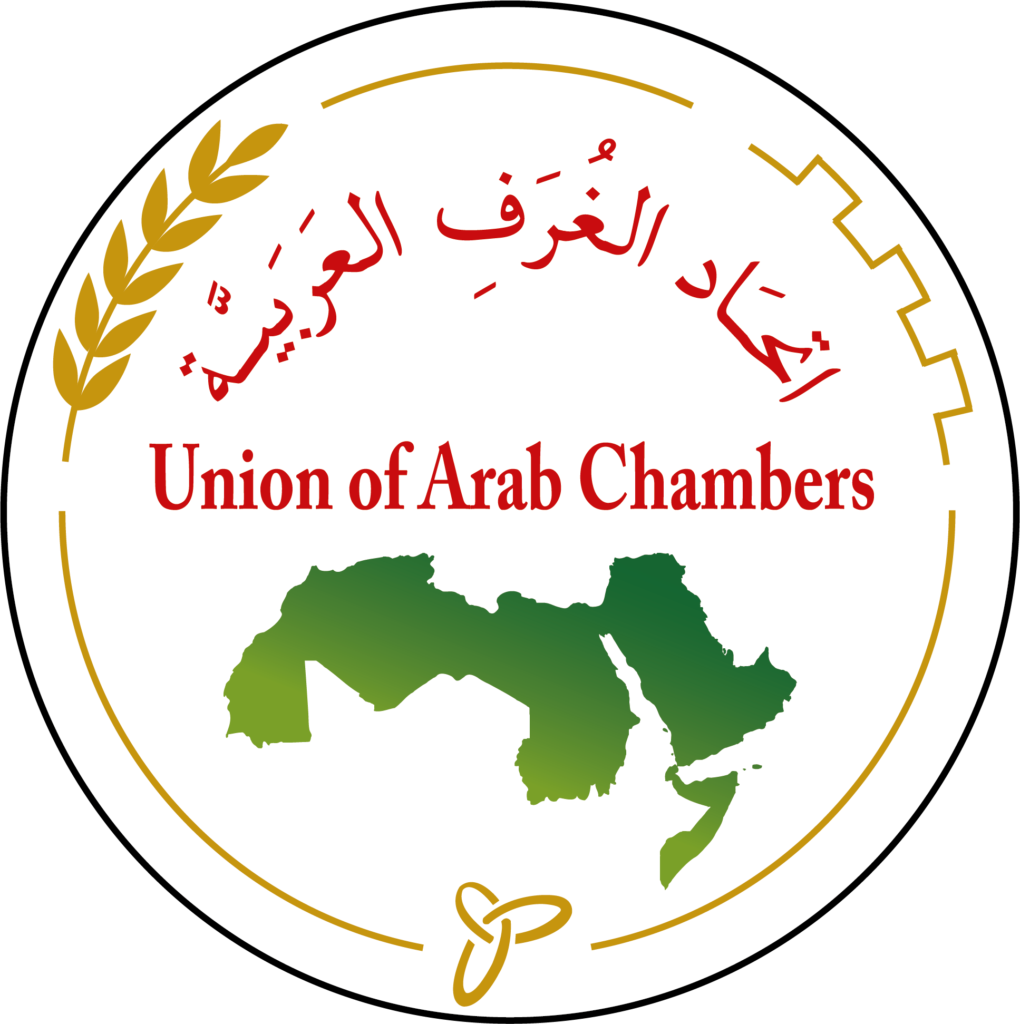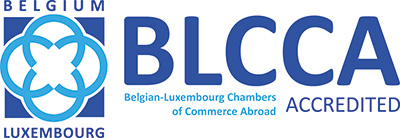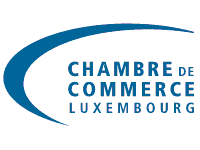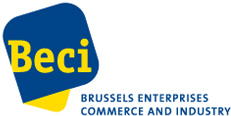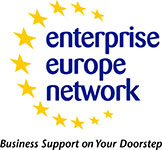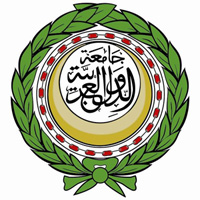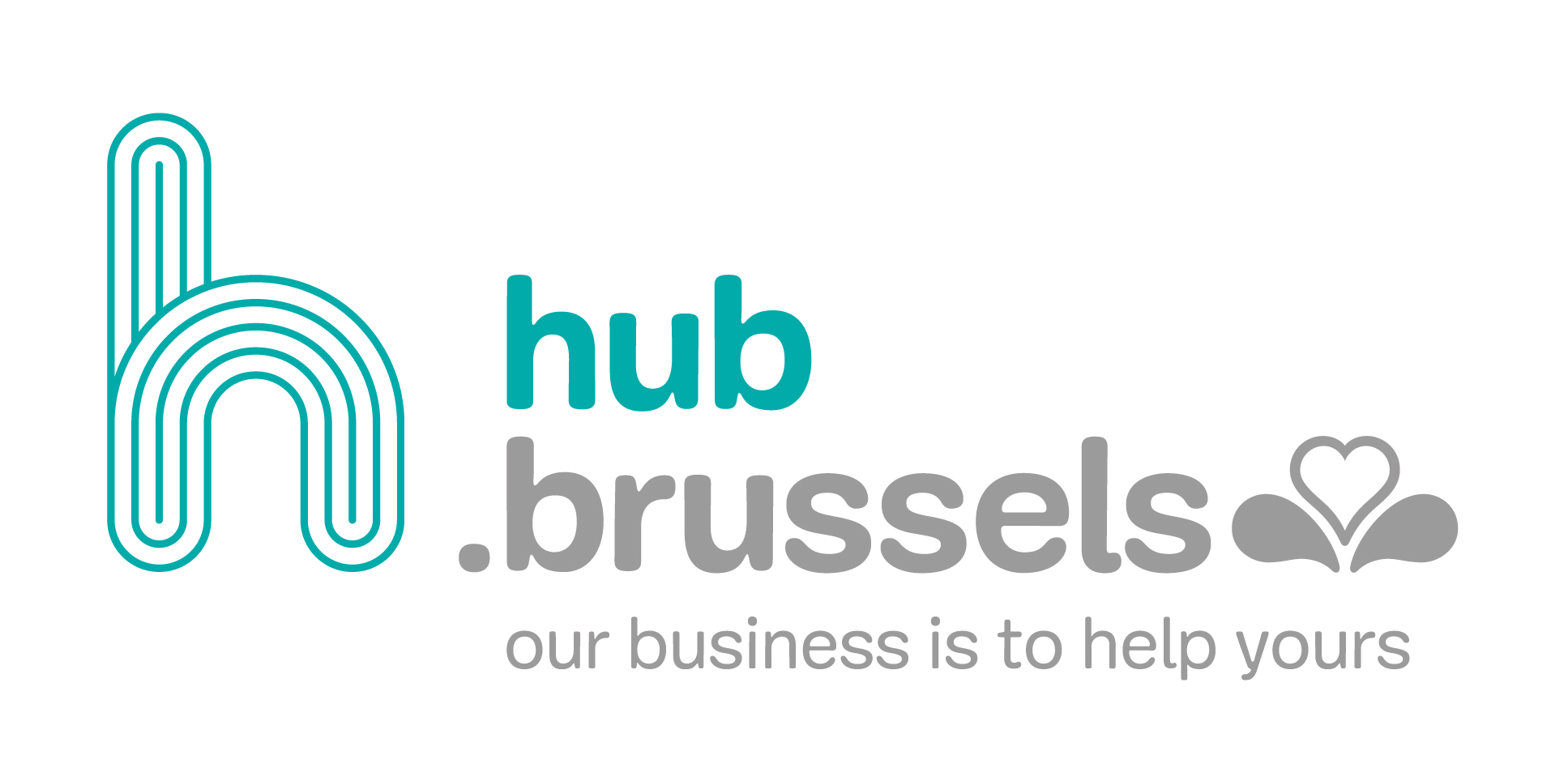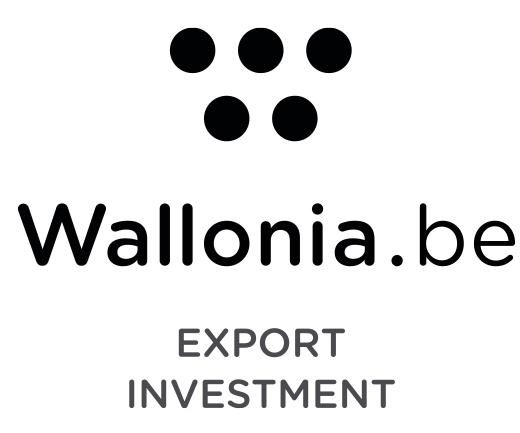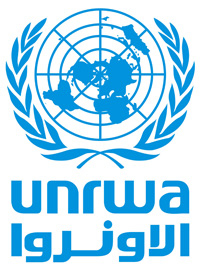6th edition 2013, October-December
Economic News
Finance
Four banks in Arab world among Global Finance’s fifty safest banks
 The National Bank of Abu Dhabi, the National Bank of Kuwait, Qatar National Bank and the Saudi Samba Financial Group can count themselves amongst the fifty safest banks in the world, according to Global Finance Magazine. Global Finance annually composes a list of the fifty safest banks on the basis of an evaluation of long-term credit ratings—from Moody’s, Standard & Poor’s and Fitch—and total assets of the 500 largest banks worldwide.
The National Bank of Abu Dhabi, the National Bank of Kuwait, Qatar National Bank and the Saudi Samba Financial Group can count themselves amongst the fifty safest banks in the world, according to Global Finance Magazine. Global Finance annually composes a list of the fifty safest banks on the basis of an evaluation of long-term credit ratings—from Moody’s, Standard & Poor’s and Fitch—and total assets of the 500 largest banks worldwide.
Islamic financial services sector expected to double in size by 2015
 According to a report released at a senior level debate organised by Dubai International Academic City (DIAC) in collaboration with the organisers of the Global Islamic Economy Summit, funds worth about USD 124 billion could potentially enter the UAE Islamic banking system by 2015, creating approximately 7,800 new jobs at Islamic banks if the current asset concentration ratios remain similar. The report expects the Islamic financial services sector to double in size from approximately 10,000 employees currently to 20,000 by 2015.
According to a report released at a senior level debate organised by Dubai International Academic City (DIAC) in collaboration with the organisers of the Global Islamic Economy Summit, funds worth about USD 124 billion could potentially enter the UAE Islamic banking system by 2015, creating approximately 7,800 new jobs at Islamic banks if the current asset concentration ratios remain similar. The report expects the Islamic financial services sector to double in size from approximately 10,000 employees currently to 20,000 by 2015.
Additionally, 500 jobs will be created in other Islamic financial services segments, according to a recent analysis by Tahseen Consulting, a specialised advisor on strategic and organisational issues in the Arab world.
Healthcare
Japan stepping up measures to export Japanese medical facilities to the Middle East
 According to “The Japan News”, the Japanese government will be assisting Kuwait in establishing and managing a hospital that will provide such services as advanced regenerative medicine and cancer treatment as part of its effort to export Japanese medical facilities and expertise to the Middle East. The hospital will be attached to an educational institution that will train nurses and other medical professionals also with the cooperation of the Japanese government.
According to “The Japan News”, the Japanese government will be assisting Kuwait in establishing and managing a hospital that will provide such services as advanced regenerative medicine and cancer treatment as part of its effort to export Japanese medical facilities and expertise to the Middle East. The hospital will be attached to an educational institution that will train nurses and other medical professionals also with the cooperation of the Japanese government.
The initiative is a part of the government’s large-scale project to export Japanese hospitals, including medical equipment and know-how, as a package. As demand for medical services in the Middle East is expected to grow, the government also aims to make Kuwait a base for promoting Japanese-style medical services.
The two governments are currently in negotiations over the project, with the aim of finalizing an agreement early next year. The Kuwaiti government will provide the necessary financial resources and land, while the Japanese side will take charge of design, construction and management of the facilities.
The new hospital, to open as early as 2016, will be established in Kuwait City and have about 1,000 beds for inpatients.
Gulf
Saudi Arabia plans to raise production capacity in petrochemical sector
 Saudi Arabia plans to invest nearly SR 100 billion (USD 26.7 billion) to enhance the petrochemical industry and raise the production capacity from the current level of 60 million tons to 80 million tons, or an increase of 33 percent, by 2015.
Saudi Arabia plans to invest nearly SR 100 billion (USD 26.7 billion) to enhance the petrochemical industry and raise the production capacity from the current level of 60 million tons to 80 million tons, or an increase of 33 percent, by 2015.
The petrochemical sector has witnessed an 8.2 percent decline since the beginning of the current year in terms of revenues due to fears of investors over low global demand on petrochemical products, according to a report published by Zawya, an online financial news provider. According to the report, Saudi Arabia ranked first and second amongst the world’s top producing countries of methanol and ethylene, respectively, the two essential components in petrochemical industry. The Kingdom’s share to the GCC and global petrochemical products stands at 62 percent and 8 percent, respectively, the report said.
Saudi Economic Insight 2013 identifies the nonoil sector as driver of Saudi growth in 2013-2014
 Saudi Arabia’s nonoil sector will continue to grow strongly, reflecting government-led infrastructure and mining projects, according to the Saudi Arabia Economic Insight 2013 report recently published by the QNB Group. Focusing on macroeconomic indicators, the report points out that Saudi Arabia enjoyed the second best economic growth performance among G-20 states in 2012 (6.8 percent).
Saudi Arabia’s nonoil sector will continue to grow strongly, reflecting government-led infrastructure and mining projects, according to the Saudi Arabia Economic Insight 2013 report recently published by the QNB Group. Focusing on macroeconomic indicators, the report points out that Saudi Arabia enjoyed the second best economic growth performance among G-20 states in 2012 (6.8 percent).
According to the report, Saudi Arabia has the lowest risk spreads in the region and furthermore enjoys high investment grade long-term foreign currency credit ratings from Moody’s, Standard and Poor’s (S&P) and Fitch, at Aa3, AA- and AA- respectively. In May 2013, S&P upgraded Saudi Arabia’s outlook to positive, reflecting its strong economic growth prospects. QNB Group however forecasts a slight slowdown in real GDP growth to 4.0 percent in 2013 as oil output declines due to weakening global demand.
The nonoil sector is projected to continue its strong growth, reflecting government-led infrastructure and mining projects. Real GDP growth will pick up to 4.4 percent in 2014 with a slight recovery in the oil sector and continued strong non-oil activity. Inflation is expected to remain moderate over the medium term. The current account surplus is projected to narrow in 2013 and 2014, as lower oil prices and production and higher imports reduce the overall trade balance. The fiscal surplus will be lower in 2013 and 2014, reflecting lower oil revenue and higher government infrastructure spending. The outlook for the banking sector remains positive as loan growth is set to pick up with brighter profitability prospects as interest rates trend up.
A sector that is particularly gaining in significance is construction. According to “Arab News”, the Saudi construction market is the most valuable market in the GCC at present. It is valued at USD 495 billion, including projects currently under way and those confirmed and in pre-execution stage.
Qatar to step up (petro)chemicals and LPG production
 Qatar is set to step up its chemicals, petrochemicals and LPG output in the coming years, said HE the Minister for Energy and Industry, Dr Mohamed bin Saleh al-Sada, speaking at the 8th LPG Trade Summit on 18 November.
Qatar is set to step up its chemicals, petrochemicals and LPG output in the coming years, said HE the Minister for Energy and Industry, Dr Mohamed bin Saleh al-Sada, speaking at the 8th LPG Trade Summit on 18 November.
Some important contributing projects are Al-Karaana and Al-Sejeel, in addition to a Qafco expansion, which is the world’s largest single-site producer of both ammonia and urea.
Al-Sada said Qatar’s LPG production, which currently stands at 11mn tonnes per year, will go up by 0.5mn tpy next year with the 2014 commissioning of the Barzan Gas Project. More LPG volumes are expected from the Bul-Hanaine oil field development, which will not just enhance crude oil production, but will also add important quantities of ethane, propane, and butane.
“Recently, we have announced a new offshore field discovery in North Field’s Block 4 North, with as much as 2.5tn cubic feet of natural gas. This is Qatar’s first new discovery in 42 years, coming after four years of intensive exploration activities,” the minister said.
Tech Free Zones in electronics trade hub Dubai are ramping up investments to attract entrepreneurs
 Dubai’s two free zones for technology, Dubai Internet City (DIC) and Dubai Silicon Oasis (DSO), are about to expand their business incubators to make way for more start-ups.
Dubai’s two free zones for technology, Dubai Internet City (DIC) and Dubai Silicon Oasis (DSO), are about to expand their business incubators to make way for more start-ups.
DIC aims to provide start-ups with knowledge, expertise in best practices and help with funding in an effort to develop the information technology sector. There are currently 1,400 companies located in DIC. Last year 1,050 companies from around the world registered to open an office there. Prominent among the free zones’ efforts is a programme called “In5” which assists entrepreneurs every step along the way from idea creation through implementation to product launch.
Previously developers have voiced concerns over the high costs involved in setting up in the DIC, especially when compared with other technology centres in Jordan or Egypt. According to Majed Al Suwaidi, the managing director of DIC, “Dubai itself is generally more expensive. You have to compare apples to apples […] Companies registered with In5 have a very good starting platform, we are very competitive and give them subsidies and discounts and help with different areas like licensing fees and their location costs.” Currently there are 25 companies located within In5, but the DIC is hoping to expand that next year.
Meanwhile, Dubai is reinforcing its leading position as a major hub for global electronics trade. According to official statistics recently released by Dubai Customs, the emirate witnessed a significant jump of 30 per cent in electronics foreign trade during the first half of 2013.
Merger of Abu Dhabi and Dubai stock markets to give birth to one of the strongest markets in the Gulf
 The merger of Abu Dhabi and Dubai stock markets will create one of the strongest markets in the Gulf region, the Middle East and North Africa, a senior official said on Monday.
The merger of Abu Dhabi and Dubai stock markets will create one of the strongest markets in the Gulf region, the Middle East and North Africa, a senior official said on Monday.
Mohammed Al Hashemi, president of the UAE Financial Markets Association, said in comments published by news agency WAM that integration will attract more investors and create big opportunities to promote the UAE capital market.
He said this "would have significant benefits for both shareholders and participants in the market and thus the national economy". He told WAM in an interview that the merger will help the country to get ranked higher among regional and international securities markets, thus attracting a lot more potential investors, especially foreign ones and international portfolios.
Earlier this month, it was reported that Abu Dhabi and Dubai have hired banks to advise on a possible merger of their two main stock exchanges. Any merger of the exchanges would be one of the biggest reforms in the country's financial industry in recent years.
Talks on a tie-up between the Dubai Financial Market (DFM) and the Abu Dhabi Securities Exchange (ADX) have occurred on and off since at least 2010, but they have been hindered by differences over valuations and Dubai's 2009-2010 corporate debt crisis.
Oman steps up airport and road construction
 According to Omani top government officials, transportation projects (airport and roads) form the largest portion of Oman’s civil projects, with over USD 20 billion worth of contracts either in the pipeline or up for tender. The most strategic projects include the USD 300 million Ras al-Hadd airport package 3, which is up for tender, and the USD 2.6 billion Batinah Expressway project, a six-package deal that has already been awarded to contractors, except for Package 2. On 19 November, the Ministry of Transport and Communications signed thirteen agreements, including three major contracts to build Batinah Expressway, with contracting companies for a total worth of OMR 535.56 million.
According to Omani top government officials, transportation projects (airport and roads) form the largest portion of Oman’s civil projects, with over USD 20 billion worth of contracts either in the pipeline or up for tender. The most strategic projects include the USD 300 million Ras al-Hadd airport package 3, which is up for tender, and the USD 2.6 billion Batinah Expressway project, a six-package deal that has already been awarded to contractors, except for Package 2. On 19 November, the Ministry of Transport and Communications signed thirteen agreements, including three major contracts to build Batinah Expressway, with contracting companies for a total worth of OMR 535.56 million.
Other important projects are the Salalah Port expansion, including the USD 143 million general cargo and liquid bulk terminal and the USD 13 billion worth of heavy manufacturing and industrial projects. The latter include Takamul’s metal projects, Haya Water’s TSE and wastewater projects opportunities valued at USD 545 million, and Oman Oil Company’s Ras Markaz crude storage terminal.
Moreover, the Oman Oil Marketing Company (omanoil) recently announced it has signed a bunkering licence and land lease agreement with Port of Duqm Company (PDC) to develop a bunkering terminal and ancillary facilities at the Port of Duqm. This terminal will provide heavy fuel oil and marine diesel oil, as well as marine lubricants to ships calling at the port and surrounding waters.
Levant
Beirut Port bustling with activity due to regional situation and heavy investments

A USD 140 million investment has turned Beirut Port into one of the largest container handlers in the East Mediterranean amid growing demand for transshipment goods from war-torn Syria, a leading maritime official said during the official inauguration on 22 October of the expansion of Beirut Port in the presence of President Michel Sleiman.
Contrary to the trend followed by most economic sectors in Lebanon, Beirut Port recorded impressive growth over the past two years both in revenues and in the number of containers it handled.One of the reasons behind this phenomenal growth is the Syrian crisis.“No doubt that Beirut Port prospered after the war broke out in Syria. The international sanctions on Syria caused activity at the Syrian ports to fall by more than 70 percent. Lebanese merchants are now supplying all the badly needed goods to their Syrian counterparts who visit Beirut Port to ship the containers in trucks to their country,” Eli Zakhour, head of the Beirut International Chamber of Navigation, explained. The port has also become one the busiest in the Middle East due to the high demand for transshipment containers from Syria and Iraq.
The wharf has been expanded from 600 meters long to 1100 meters, while the basin has become 16.5 meters deep, allowing Beirut Port to receive the largest container ships in the world. The port authorities also doubledthe number of cranes.
Beirut Port revenues registered a growth of 18.9 percent in the first nine months of this year compared to a growth of 11.9 percent in the same period of last year. The number of containers handled by Beirut Port in the month of September alone stood at 40,000 containers compared to 30,000 in the same month of last year.
Expansion of container and phosphate terminals testify to Aqaba economic renaissance
 On the 24th of October, Jordan’s King Abdullah inaugurated the expansion of the Aqaba Container Terminal and the new phosphate terminal, which has been set up at a cost of USD 240 million with a storage capacity of 240,000 tonnes. Built on a Build, Operate and Transfer basis, the terminal’s handling capacity is expected to reach six million tonnes annually. It features a 200-metre berth and can accommodate ships of various sizes, from 5,000 to 100,000-tonne shipments. The expanded container terminal has seen the berth extended to 1,000 metres from 540 metres and the anchorage upgraded to accommodate three huge ships at the same time. Further expansion is planned in three to five years to raise the handling capacity to 2.2 million containers.
On the 24th of October, Jordan’s King Abdullah inaugurated the expansion of the Aqaba Container Terminal and the new phosphate terminal, which has been set up at a cost of USD 240 million with a storage capacity of 240,000 tonnes. Built on a Build, Operate and Transfer basis, the terminal’s handling capacity is expected to reach six million tonnes annually. It features a 200-metre berth and can accommodate ships of various sizes, from 5,000 to 100,000-tonne shipments. The expanded container terminal has seen the berth extended to 1,000 metres from 540 metres and the anchorage upgraded to accommodate three huge ships at the same time. Further expansion is planned in three to five years to raise the handling capacity to 2.2 million containers.
Launched in 2004 “with the objective of unlocking the potential of the Aqaba Special Economic Zone (ASEZ) by accelerating its economic growth and development”, Aqaba Development Corporation (ADC) owns Aqaba’s seaport, airport and strategic parcels of land as well as the development and management rights for these assets. It is mandated to develop ASEZ by building new or expanding existing infrastructure through projects between the public and private sectors, under which the state retains land and infrastructure ownership while the private sector undertakes the responsibilities for financing, construction, and development and operational activities.
Projects implemented in line with this approach over the past years include the expansion to the Queen Alia International Airport, the Disi Water Conveyance Project, the new terminals in Aqaba and electricity-generation projects.
Russian Rosatom to build Jordan’s first two nuclear reactors
Jordan announced on Monday that it has selected Russia to build the country’s first two nuclear reactors in a bid to produce atomic energy within the next decade.At a press conference, the government announced that it has selected Russian state-owned firm Rosatom as its preferred vendor to construct two 1,000-megawatt (MW) nuclear power plants east of Amman by 2022.
As part of the decision, ratified by the Prime Ministry on Sunday, the government and the Russian firm have entered negotiations over electricity pricing in order to reach a final agreement and break ground on the reactors by 2015.
Officials say the deal aims to help achieve energy independence in Jordan, which imports around 97 per cent of its energy needs at a cost of over one-fifth of the gross domestic product, and bring stability to a sector that has been impacted by ongoing disruptions in Egyptian gas supplies and fluctuations in international oil prices.
Jordan has become the third Arab state to pursue peaceful nuclear energy, with the UAE set to build four reactors with a combined 5,600MW capacity by 2020 and Egypt reaffirming earlier this month its plans to establish a 1,000MW reactor by the end of the decade.
Palestinian Delegation in Belgium upgraded to “Diplomatic Mission”
The agenda of Belgian Vice-Prime Minister and Minister of Foreign Affairs, Didier Reynders, during a recent visit to Palestine and Israel was well-filled. Besides meeting with several Israel and Palestinian officials, including Mr. Mahmoud Abbas, the President of the Palestinian Authority, Mr. Reynders inaugurated the prenatal and pediatric section in the Holy Family maternity in Betlehem. At this occasion, the minister announced that the Belgian government will contribute EUR 30 000 to a project of the Order of Malta supporting maternity care services. He also committed himself to promoting the installation of Cat Lab devices, which allow for high quality cardiac screenings, in Ramallah, after Belgium had already done this in Gaza.
During his visit, Mr. Reynders also promoted a project which foresees the organization in 2014 of an economic conference in Brussels with the participation of international and Palestinian actors.
Last but not least, it was announced that the status of the Palestinian Delegation in Belgium will be upgraded to that of a diplomatic mission, which will mean that Head of Mission Mrs. Leila Shahid will carry the title of Ambassador.

North Africa and Maghreb
South Korea to build vocational and training centre in Benghazi
A new vocational and educational training centre is to be built in Benghazi by the Human Resources Development Service of Korea (HRD Korea), in a project funded by the Libyan government.
The USD 13.6 million deal will see HRD Korea build an institute that is an exact replica of a centre in South Korea with the capacity to accommodate 900 students. HDR Korea will be responsible for managing the construction of the premises as well as initially running the centre.
HRD Korea has also signed a USD 94.8 million contract with the Libyan Ministry of Labour and the Warrior Affairs Commission (WAC) to send Libyans to South Korea to study on vocation training programmes.
A contract for this ‘vocational education and training export project’ between HRD Korea and the Ministry of Labour was signed on the 21st of October. The scheme will see 1,400 Libyans, chosen by the Ministry of Labour, undertaking six-month vocational training courses in South Korea. Fields of study include electronics, mechanics, welding and plumbing.
Major players in the oil industry on exploration spree in Morocco
According to a press release by BP, the latter company reached an agreement to farm-in to three deepwater exploration blocks offshore Morocco in October. Agreements with Kosmos Energy cover three blocks in the Agadir Basin, offshore Morocco. Under the terms of the agreements, which are subject to government approval, BP will acquire a non-operating interest in each of the Essaouira Offshore, Foum Assaka Offshore and Tarhazoute Offshore blocks. BP expects its first well in Morocco to be drilled next year.
BP is the latest major player in the oil industry to participate in the exploration spree that is currently bringing energy companies to the Kingdom. At the beginning of the year, Chevron Corporation announced that its subsidiary, Chevron Morocco Exploration Ltd, signed petroleum agreements with Morocco's Office National Des Hydrocarbures Et Des Mines for three offshore areas.
Cairn Energy also recently announced it has entered into a farm-in agreement with Kosmos Energy and the Moroccan National Oil Company (ONHYM) for a 20% non-operated interest in an exploration block offshore North West Africa which is scheduled for drilling in H2 2014.
The farm-in to the Cap Boujdour exploration permit enables Cairn to access frontier acreage with transformational potential and containing a range of exploration play types. In the event of success, the area has significant follow-up potential, according to a Cairn Energy press release.
Moroccan Agency for Solar Energy and EIB negotiate next phase of Ouarzazate solar complex
 The European Investment Bank recently announced the construction and operation of a 200 MW CSP Parabolic trough plant under the next phase of the Ouarzazate solar power complex. Promoted by the Moroccan Agency for Solar Energy (MASEN), the project's main objective is to help developing a globally-available, non-carbon power generation technology that ultimately may not require fossil fuel back-up capacity and reduce the costs of CSP for world benefit. By creating a new green industry and increasing the penetration of renewable energy in the country's energy mix, the project will contribute to Morocco's objectives of a more secure energy supply, energy diversification, CO2 emission reductions, increased employment and protecting the local environment.
The European Investment Bank recently announced the construction and operation of a 200 MW CSP Parabolic trough plant under the next phase of the Ouarzazate solar power complex. Promoted by the Moroccan Agency for Solar Energy (MASEN), the project's main objective is to help developing a globally-available, non-carbon power generation technology that ultimately may not require fossil fuel back-up capacity and reduce the costs of CSP for world benefit. By creating a new green industry and increasing the penetration of renewable energy in the country's energy mix, the project will contribute to Morocco's objectives of a more secure energy supply, energy diversification, CO2 emission reductions, increased employment and protecting the local environment.
Chamber of Commerce of Mauritania enters new era
Recently, H.E. Mr. Mohamedou Ould Mohamed Mahmoud, Chairman of the Chamber of Commerce, Industry and Agriculture in Mauritania (CCIAM), announced the realization of a number of projects that take the CCIAM into a new era. Among them are the construction of a new business center with several meeting rooms and state of the art infrastructure and the creation of the International Centre for Mediation and Arbitration of Mauritania (CIMAM ) for settling disputes. Mr. Mahmoud also welcomes investors and researchers in need of reliable data on commercial and economic matters to benefit from the services offered by the Mauritanian Information Centre for Economic and Technical Development (CIMDET), an important CCIAM branch. Furthermore, a new new website, available in French, English, Spanish and Arabic, has recently been launched.
Mr. Mahmoud states that “these projects have seen the light of day at a time in which Mauritania, which benefits from a strategic geographic location, is striving to facilitate access to its natural resources and to optimize their exploitation.”

More information: www.chambredecommerce.mr




















